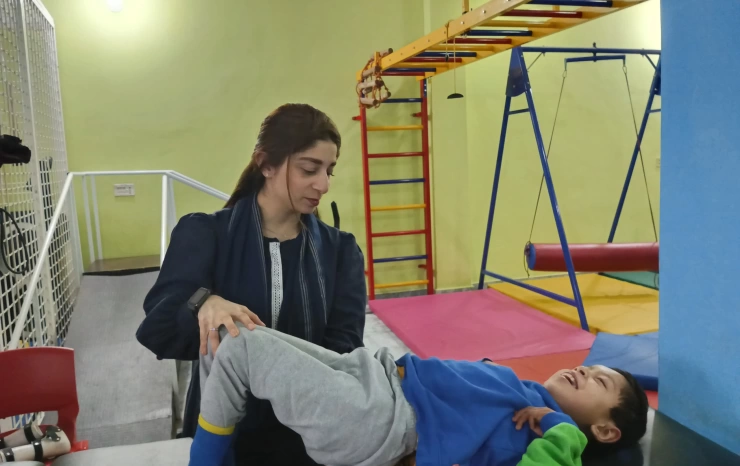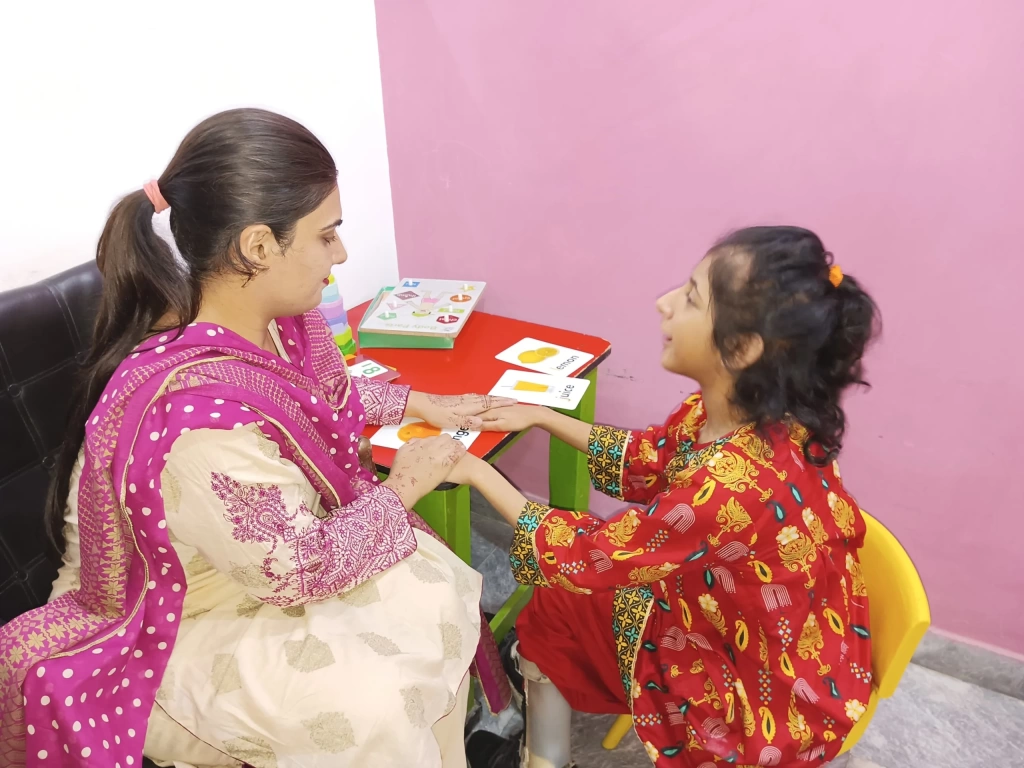There are three types of peripheral nerves: motor, sensory and autonomic. Some neuropathies affect all three types of nerves, while others involve only one or two.
NEUROPATHY

Neuropathy Treatment in DHA Lahore
Neuropathy is a condition caused by damage to the peripheral nerves, leading to symptoms such as numbness, tingling, burning sensations, pain, and weakness — most commonly in the hands and feet. It can develop due to diabetes, infections, autoimmune disorders, vitamin deficiencies, or injuries.
At Rehab Care in DHA Lahore, we provide specialized rehabilitation services for individuals living with neuropathy. Our experienced team designs personalized treatment plans focused on reducing symptoms, restoring nerve health, and improving daily function.
Using a holistic approach that combines physical therapy, occupational therapy, advanced pain management, and lifestyle modifications, we aim to help patients manage discomfort, improve mobility, and enhance overall quality of life. Our goal is to empower every patient to regain independence and live more comfortably.
- Neuropathy involves damage to the peripheral nerves, leading to symptoms like numbness, tingling, and weakness.
- Causes of neuropathy include diabetes, infections, autoimmune diseases, and traumatic injuries.
- Rehab Care offers specialized rehabilitation services for individuals with neuropathy.
- Our team develops personalized treatment plans to manage symptoms and improve nerve function.
- Treatment modalities may include physical therapy, occupational therapy, medication management, and lifestyle adjustments.
- Our goal is to empower individuals with neuropathy to regain function, reduce pain, and enhance their overall quality of life through comprehensive rehabilitation interventions.
Types of Neuropathies:
3 Types of Peripheral Nerves:
- Motor
- Sensory
- Autonomic

3 Types of Peripheral Nerves:
The nervous system relies on three main types of nerves motor, sensory, and autonomic each playing a vital role in movement, sensation, and body regulation. Damage to any of these nerves can significantly impact daily life.
Motor nerves carry signals from the brain and spinal cord to muscles, enabling actions like walking, grasping objects, or fine finger movements. Damage to these nerves can lead to muscle weakness, cramps, spasms, and difficulty with movement.
Sensory nerves send information from the body back to the brain, helping you detect temperature, texture, pain, and body position. Damage here often causes numbness, tingling, sharp pain, or heightened sensitivity to touch.
Autonomic nerves control involuntary functions like heart rate, blood pressure, digestion, and sweating. Damage may cause dizziness when standing, irregular heartbeat, digestive problems, changes in sweating, bladder issues, or sexual dysfunction.
Rehab Care in DHA phase 6, Lahore our multidisciplinary team specializes in diagnosing and treating nerve-related conditions through targeted rehabilitation, therapy, and personalized care plans helping patients restore function, manage symptoms, and improve quality of life.

